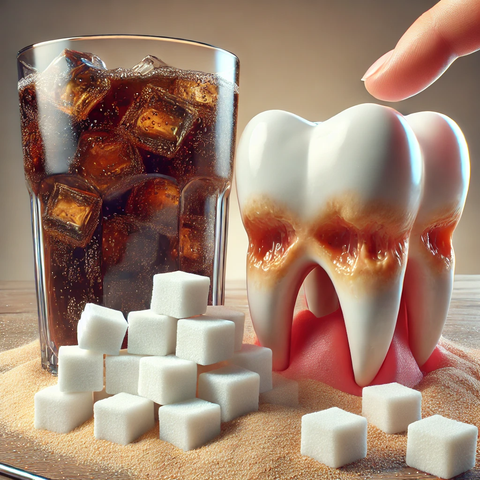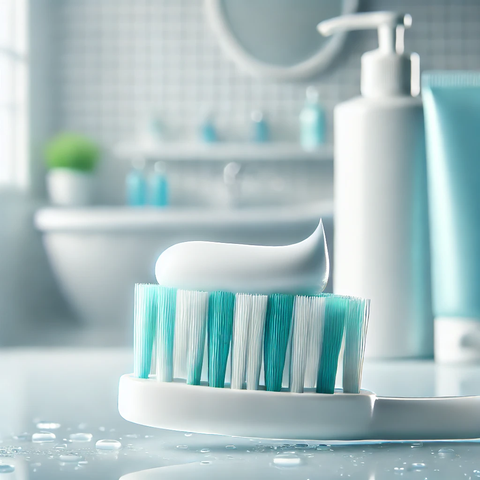Why sugar is harmful to your teeth – and what you can do
A healthy diet plays a crucial role in your overall health—and especially in your teeth. Sugar is one of the biggest enemies of a healthy mouth. But why exactly is sugar so harmful, and how can you protect your teeth?
How sugar causes tooth decay
Every time you consume sugary foods or drinks, a complex process begins in your mouth. Bacteria in plaque feed on the sugar and produce acids. These acids attack tooth enamel, removing minerals—a process known as demineralization. If this happens frequently, without counteracted by your saliva or a remineralizing diet, small dents in the enamel develop, which can develop into cavities.
The frequency of sugar intake is crucial
It's not just about how much sugar you consume, but also how often. Scientific studies have shown that high frequency of sugar exposure significantly increases the risk of tooth decay.
An in vitro study found that acid production in plaque increased with the frequency of sugar consumption. This means that the more often you consume sugar, the longer your teeth are exposed to harmful acids. A US cross-sectional study also found that the risk of developing tooth decay increased by 22% for each sugary soft drink consumed by schoolchildren. A Finnish study also confirmed this connection in adults.
How to protect your teeth
The most important thing is to consume sugar as infrequently as possible. If you do crave something sweet, enjoy it immediately after a main meal—not throughout the day. This will reduce the number of acid attacks on your teeth.
If you don't always have the opportunity to eat a perfect diet, dietary supplements can be a useful support for your dental health. Important nutrients like calcium, vitamin D, and coenzyme Q10 help strengthen tooth enamel and keep gums healthy.
Sources:
1. Diaz-Garrido N, Lozano C, Giacaman RA. Frequency of sucrose exposure on the cariogenicity of a biofilm-caries model. Your J Dent. 2016;10(3):345–50.
2. Wilder JR, Kaste LM, Handler A, Chapple-McGruder T, Rankin KM. The association between sugar-sweetened beverages and dental caries among third-grade students in Georgia. J Public Health Dent. 2016;76(1):76–84.
3. Bernabé E, Vehkalahti MM, Sheiham A, Lundqvist A, Suominen AL. The Shape of the Dose-Response Relationship between Sugars and Caries in Adults. J Dent Res. 2016;95(2):167–72.




